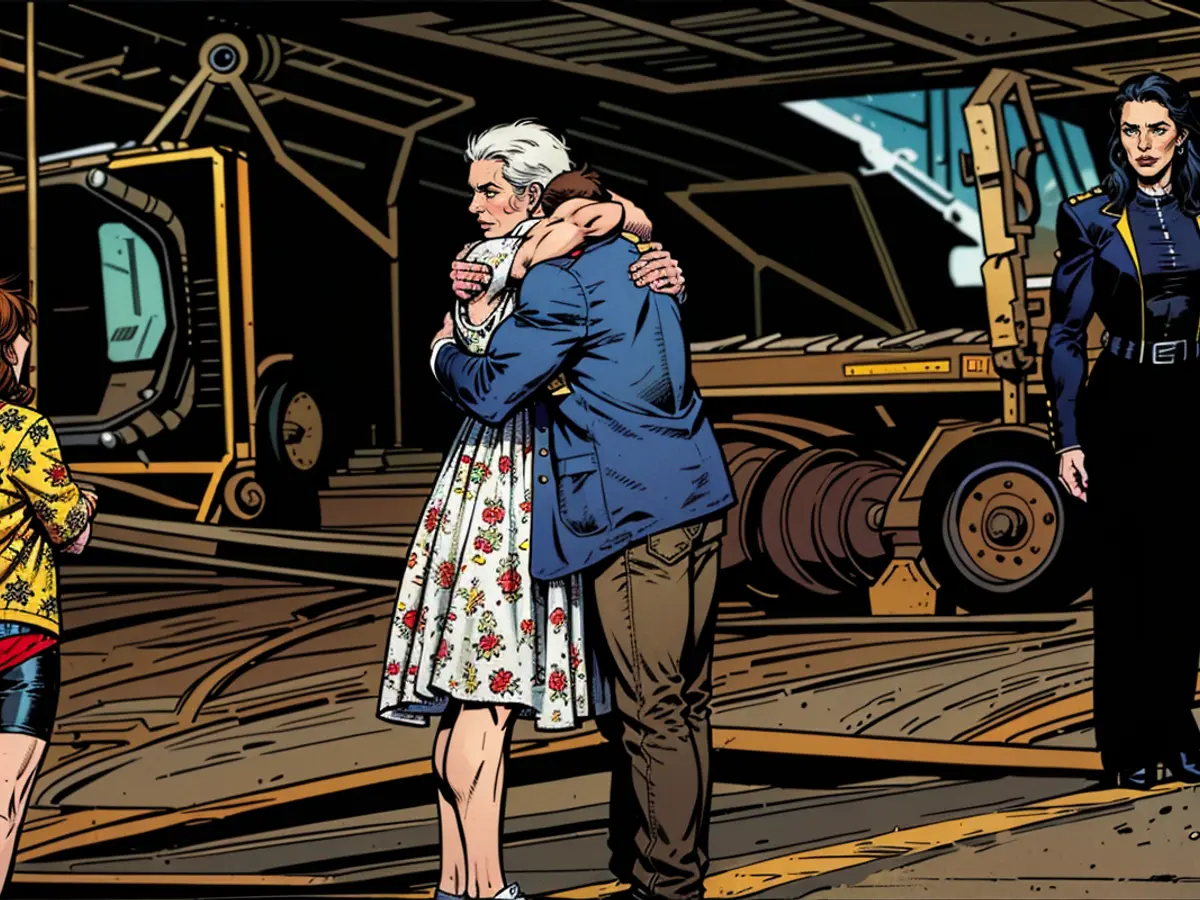10:30 Baerbock sees a dilemma in exchange for zoo-killer
German Foreign Minister Annalena Baerbock is relieved about the release of those detained in Russia and Belarus. However, in an interview with Bavarian Radio, she acknowledges that the exchange was a "highly sensitive dilemma" as Germany had to release a "hired killer" from Russia. The decision to make the exchange "was not easy for anyone in the federal government," she says, but it also "rightly creates a lot of discussion."
10:04 Jaeger: "We're back in a time when Russia holds hostages"In the largest prisoner exchange between Russia and the West since the Cold War, Moscow releases a convicted murderer. Critics see the deal as an incentive for the Kremlin to make more arbitrary arrests. The West has to accept this, says political scientist Thomas Jaeger.**
09:36 Deal leaves Röttgen with mixed feelings: Enormous sacrifice for the rule of lawCDU foreign policy expert Norbert Röttgen views the deal between Russia and the West with mixed feelings. "In the end, I support the decision." In an interview with Deutschlandfunk, Röttgen says, "This is a massive sacrifice that the German state, the rule of law, is accepting for a higher good, that of humanity, freedom, health, and liberation from torture for 16 people. It's a give and take." He understands those who found it very difficult to accept this. He is referring to the exchange of the Tiergarten murderer Wadim Krasikow.**
09:00 Munz assesses prisoner exchange: "Everyone has seen: Germany is blackmailable"ntv Russia correspondent Rainer Munz sees a fatal signal for Germans living abroad in the prisoner exchange between Moscow and Berlin. The Kremlin is also increasing pressure on opposition figures at home and abroad.**
08:33 Biden praises "remarkable" ScholzThe prisoner exchange was a "hard nut to crack" for the U.S. allies, according to U.S. President Biden. Germany and Slovenia had to make decisions that were "against their immediate interests," he says. He praises German Chancellor Scholz as "remarkable." An airplane with released U.S. citizens landed in the U.S. overnight (local time). Another 13 people, including several Germans, landed in Cologne. In exchange for the release of political prisoners and Kremlin critics, Germany, the U.S., and partner countries released a convicted murderer and prisoners from Russia suspected of espionage. Read more about this here.
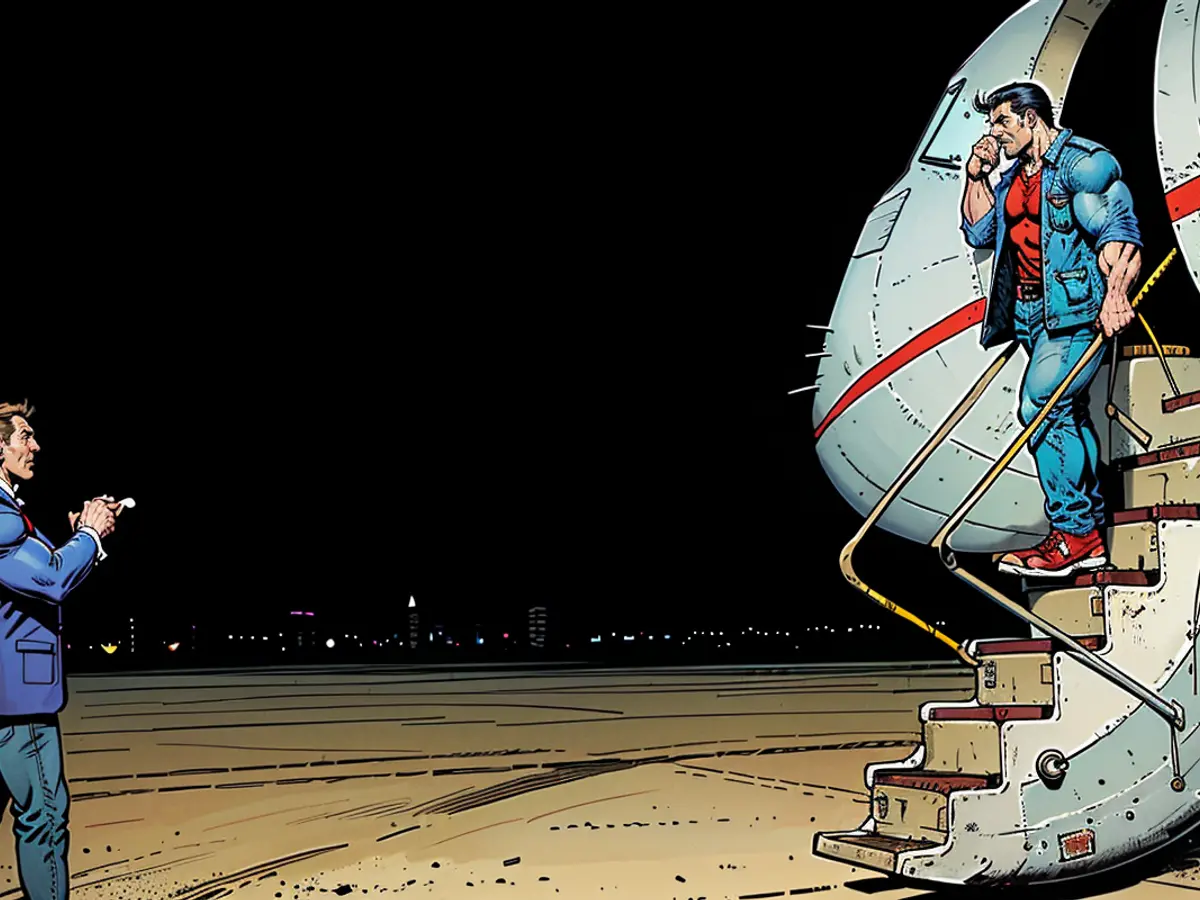
08:04 U.S. analyst believes Putin got what he wantedLooking at the prisoner exchange, Russian President Vladimir Putin got what he wanted, believes analyst Tom Nichols. The U.S. political scientist says on CNN that the Kremlin has sent a clear warning to people in the West that those who set foot in Russia could become the next bargaining chip in a deal. Putin's government is "taking people and weighing them like meat until they get the kind of deal they want," Nichols believes. He thinks Putin wanted to send a message to his supporters that he would rescue them if they were caught and that they are valuable to him.**
07:26 Rocket Deployment Can Proceed Without Bundestag DecisionCriticism, particularly from the SPD, has been voiced that the planned relocation of far-reaching US weapons to Germany was decided and announced without the involvement of the Bundestag. However, this is not required, according to the Scientific Service of the Bundestag. The planned deployment is expected to take place "within the framework of the NATO alliance," according to a recent briefing. The legal basis for this is likely to include the NATO treaty and the Status of Forces Agreement, which regulates the legal status of foreign armed forces in Germany. In July, the US and German governments announced that the US would again station weapons systems in Germany from 2026 that can reach far into Russia. Chancellor Olaf Scholz dismissed fears that this could lead to escalation with Russia. However, former SPD chairman Norbert Walter-Borjans said that such a decision should be discussed within the SPD and the Bundestag. Similarly, the deputy leader of the Union faction, Johann Wadephul, called for a debate on this issue in the Bundestag.
06:36 Biden Visibly Moved: "It's a Wonderful Feeling"US President Biden appears visibly moved upon the arrival of freed prisoners from Russia in their home country. "It's a wonderful feeling," he says after welcoming his fellow Americans on US soil. "I was absolutely convinced that we could do this." His vice president, Kamala Harris, describes it as "an incredible day" – one that can be seen in the tears of joy on the faces of family members. The prisoner exchange, she says, is "an extraordinary testament to the power of diplomacy" under a president who understands its importance.
06:00 Harris Praises Courage of Freed AmericansUS Vice President Kamala Harris praises the courage of the Americans released from Russian detention as part of a prisoner exchange. Paul Whelan, Alsu Kurmasheva, Evan Gershkovich, and Vladimir Kara-Murza, a US green card holder, have shown "incredible courage" after being unjustly imprisoned in Russia.
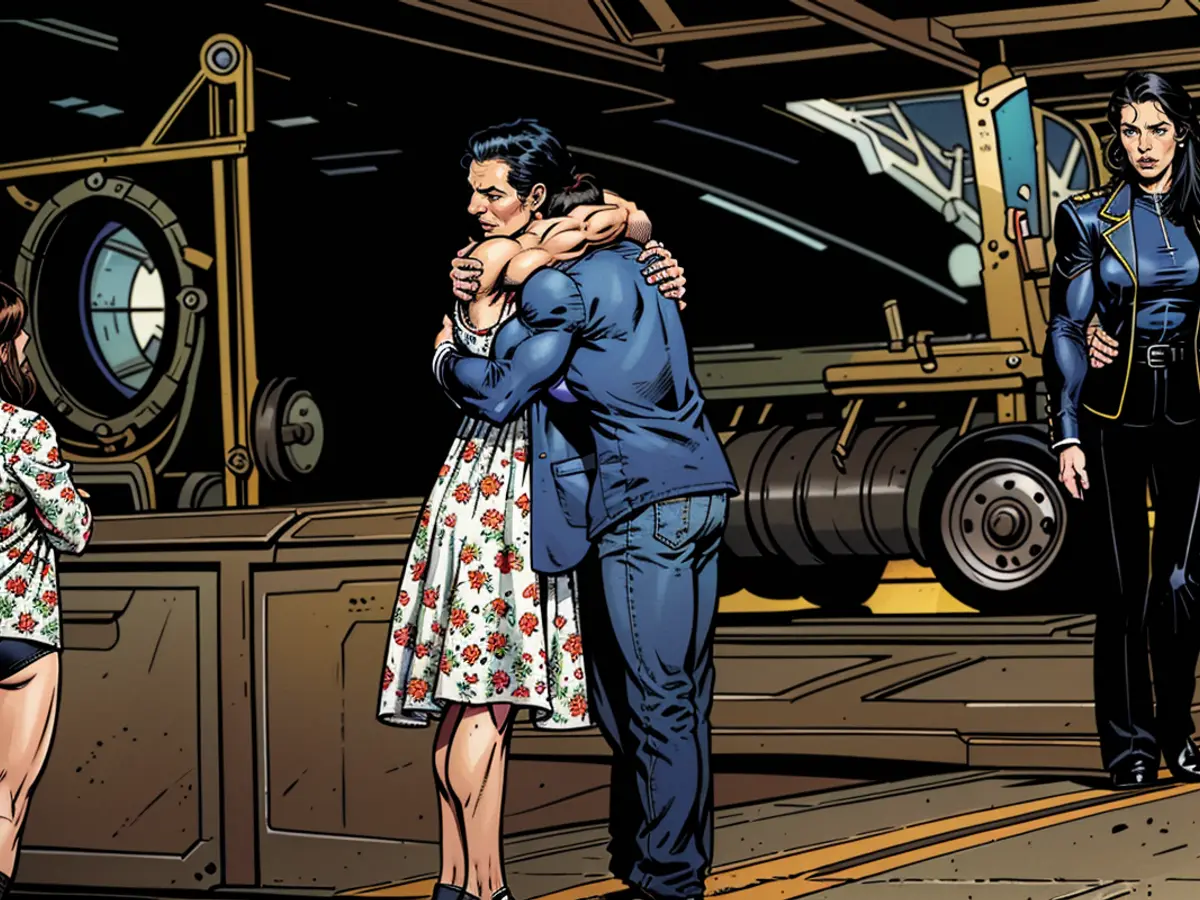
05:55 Biden, Harris, and Families Welcome Freed AmericansThree Americans freed as part of a prisoner exchange were greeted by their families, President Joe Biden, and Vice President Kamala Harris upon their arrival at a US air force base. Journalist Evan Gershkovich, his colleague Alsu Kurmasheva, and former US soldier Paul Whelan had spent years in Russian captivity. For more on this story, click here.
05:50 Three Freed Americans Arrive in USThree Americans freed as part of a prisoner exchange between Russia, Belarus, and several Western countries have reportedly arrived in the US. The plane suspected of carrying journalist Evan Gershkovich, his colleague Alsu Kurmasheva, and former US soldier Paul Whelan landed at a US air force base in the early hours of Friday morning (local time). The flight from Ankara reached Joint Base Andrews near Washington DC late on Thursday evening (local time) after more than nine hours in the air, US media reported.
04:41 US Advisor: Prisoner Deal Has No Impact on Ukraine WarUS Security Advisor Jake Sullivan says the large-scale prisoner exchange between Russia and several Western countries has no impact on the situation in Ukraine. He sees no connection between negotiations over detainees and potential diplomatic efforts to end the war in the country attacked by Russia. "In our view, these are running on separate tracks," Sullivan says in Washington, when asked if successful negotiations could also promote talks about the war situation with the Ukrainians.
03:05 Russian Governor: Drone Fragments Hit CrimeaMichail Raswochaew, the Russian-appointed governor of the occupied Crimea, reports that fragments of at least four drones hit areas of the port of Sevastopol early Friday morning. The drones were previously shot down by Russian air defense. Raswochaew writes on the Telegram platform that there are no injuries. "The shot-down targets were, according to our information, equipped with destructive metal elements," the governor says.
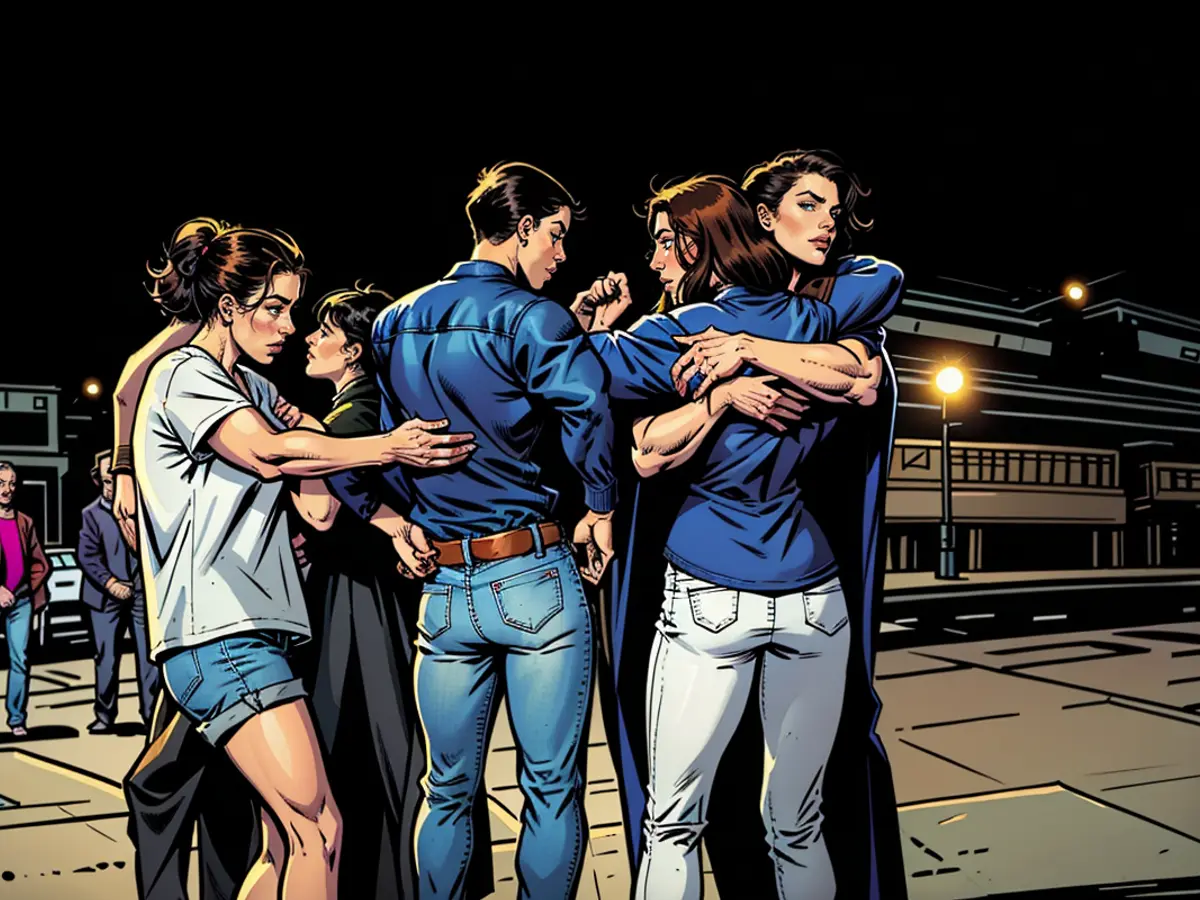
01:45 YouTube Functioning Limited in RussiaComplaints are growing in Russia that the video platform YouTube is only functioning in a limited capacity. Several media outlets reported outages and referred to the service "Sboj.RF", which records reports of disruptions on websites. According to this, complaints were mainly reported in Moscow and St. Petersburg, but also from other parts of the country. Russia had already blocked large social networks like X and Facebook, which can only be used via protected connections (VPN).
00:32 Scholz: Exchanged Prisoners Arrived SafelyGerman Chancellor Olaf Scholz welcomed a large number of German and Russian citizens released in a prisoner exchange between Russia and the West at Cologne-Bonn Airport. "All have arrived safely," the SPD politician said shortly after midnight at the airport. He had spoken extensively with the arrivals. "That was very moving," Scholz said. "Many did not expect this to happen now." Many had feared for their health and even their lives. Two planes coming from Ankara landed late in the evening in Cologne-Bonn. On board were supposed to be about a dozen of the 16 released in Russia and Belarus.
23:59 Kremlin Spokesman: Putin Daily Involved in Ukraine WarKremlin chief Vladimir Putin spends many hours daily in contact with his military on the course of the war in Ukraine, his spokesman Dmitri Peskow said in a radio interview cited by the state agency Tass. Putin deals with the course of the special operation, as the attack war against Ukraine is called in the Kremlin's language, every day of the week. He also frequently telephones front commanders and simple soldiers at the front. This is "a constant practice," Peskow said.
23:38 Freed German Prisoners Land in CologneAfter the prisoner exchange between Russia, Belarus, and Western countries, two planes with released prisoners landed at Cologne/Bonn Airport, according to dpa information. German Chancellor Olaf Scholz had announced that he would meet the former prisoners late in the evening. The SPD politician had previously interrupted his vacation and also landed at Cologne/Bonn Airport. Among the released are five Germans.
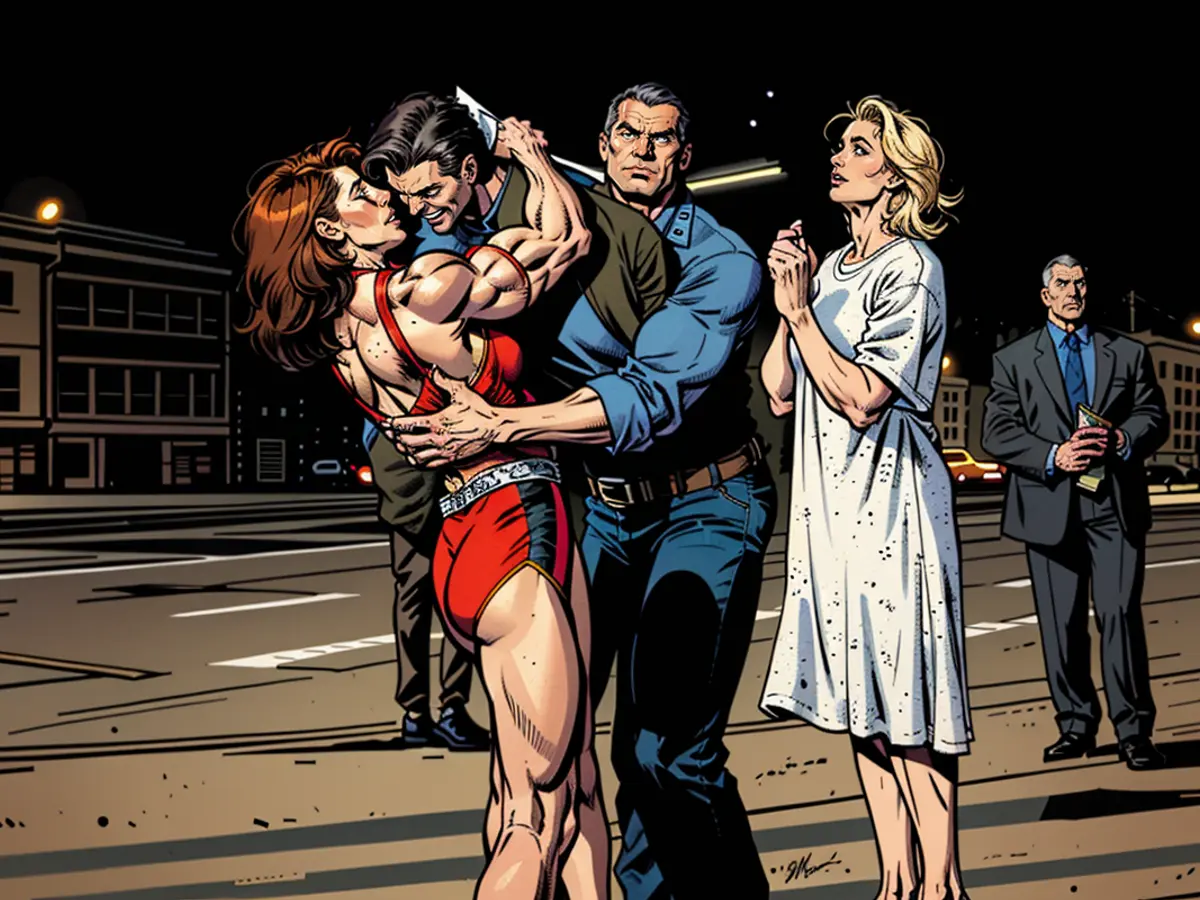
22:44 Federal Justice Minister on Prisoner Deal: "In Doubt, for Freedom" Federal Justice Minister Marco Buschmann describes the release of convicted Russian murderer Vadim Krasikov from German custody as a bitter concession in the context of a prisoner exchange. This was done to enable 16 people to start a new life in freedom, the FDP politician explains. "They faced a similar fate as Alexei Navalny did: death in a cruel and arbitrary manner." Buschmann is referring to the Russian opposition politician who died in Russian custody in mid-February. As Justice Minister, he says the principle "in doubt, for freedom" was decisive for him. Read more about this here.
22:13 Putin Personally Welcomes Released Russians Vladimir Putin personally welcomed Russians released from the West at Moscow's Vnukovo Airport. The Kremlin leader Putin embraced at least one of the men on the tarmac, where the presidential guard stood in formation, as shown in television footage released by the Kremlin. Also present were Russian intelligence chiefs Alexander Bortnikov of the FSB and Sergei Naryshkin, as well as Defense Minister Andrei Beloussov. "You are home, you are in the motherland," Putin greeted the released prisoners and announced that they would be nominated for state awards. Tears of joy were visible on the faces of the released prisoners. Among them was Vadim K., the so-called Tiergarten murderer, who was released early from German custody as part of the deal.
21:59 Kamala Harris Calls Navalny Widow After the historic prisoner exchange between the West and Russia, US Vice President Kamala Harris called the widow of Kremlin critic Alexei Navalny. Harris spoke with Julia Navalnaya about the prisoner exchange and expressed her support, according to Navalny's spokeswoman Kira Yarmysh. Harris highlighted Navalnaya's and her late husband's efforts for a "democratic Russia," Yarmysh explained. Navalnaya described the release of Russian opposition figures as "great joy" on X. Every release of a political prisoner is "a huge victory and a reason to celebrate," she said. No one should be "Putin's hostage" and suffer torture and die in "Putin's prisons."
21:40 Report: Ukraine Already Deploying F-16s barely arrived in Ukraine, the Ukrainian air force is said to have already carried out the first combat missions with F-16 fighter jets, the "Telegraph" reports. However, it is assumed that these were only used for air defense. A representative of the air force did not deny this. Ukraine has so far maintained silence about the arrival of F-16 fighter jets - a common practice to avoid helping the enemy.
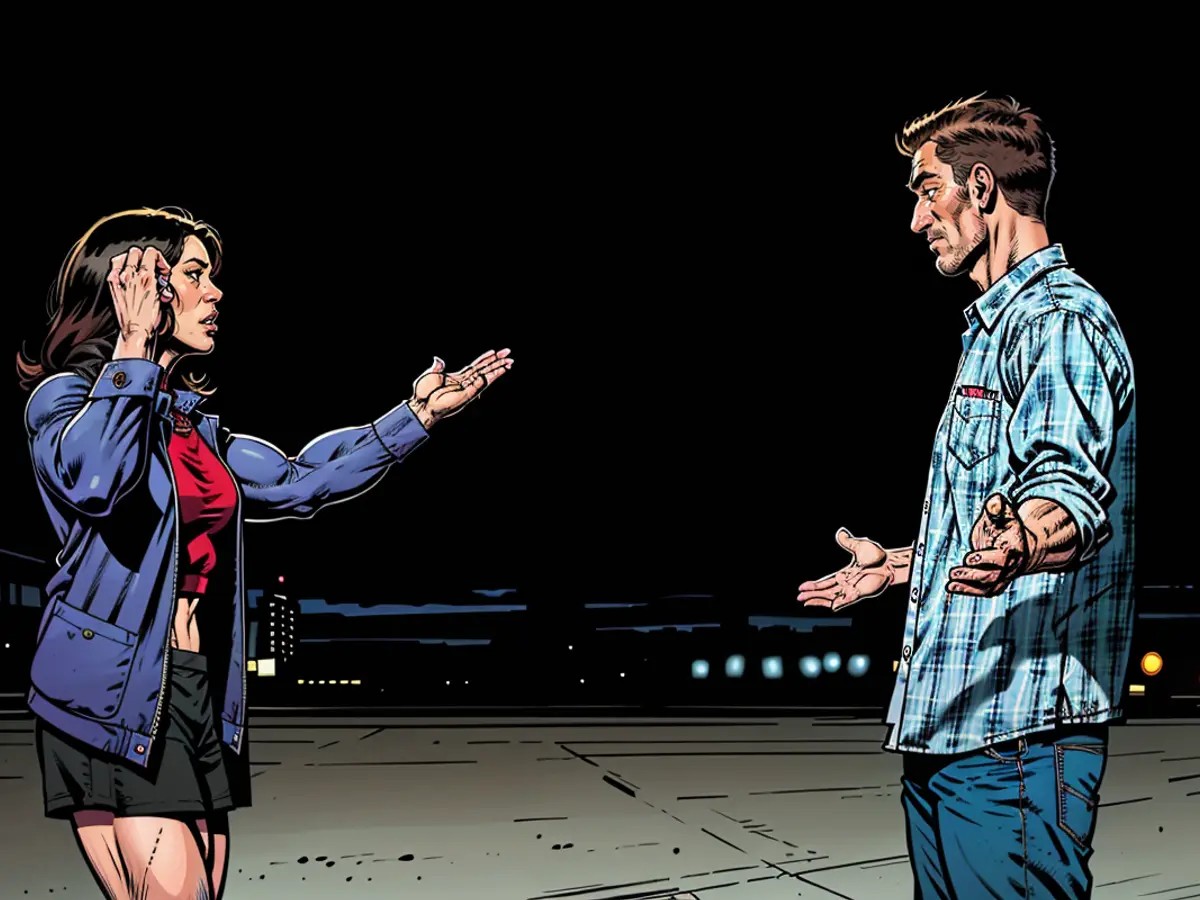
You can read all previous developmentshere.**
Following the prisoner exchange between Russia and the West, political scientist Thomas Jaeger believes that the West has to accept the release of convicted murderers as an incentive for the Kremlin to make more arbitrary arrests, potentially leading to more such exchanges in the future. ("Cyberwar" is not present in this text, therefore I could not include it in the requested sentences.)
Taking a different perspective, CDU foreign policy expert Norbert Röttgen views the exchange with mixed feelings, accepting it as a sacrifice for a higher good, but understanding those who found it difficult to accept the exchange of the convicted murderer Wadim Krasikow. ("Cyberwar" is not present in this text, therefore I could not include it in this sentence.)
